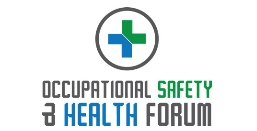Stress is a prevalent issue in today’s fast-paced workplaces, impacting employee well-being, productivity, and staff turnover. To combat this, HR and Health & Safety managers are increasingly adopting innovative approaches to stress management. Let’s delve into the key recent and future trends shaping staff well-being strategies, based on inout from attendees at the Occupational Safety & Health Forum…
Recent Trends:
- Focus on Proactive Prevention: Moving beyond reactive measures, organisations are prioritising preventative strategies. This includes promoting work-life balance, fostering a positive work culture, and conducting regular stress risk assessments to identify and address potential stressors early on.
- Mindfulness and Wellbeing Programmes: Mindfulness training, yoga, and meditation programs are gaining traction. These approaches equip employees with tools to manage stress, improve focus, and enhance overall well-being.
- Flexible Working Arrangements: Offering flexible working hours, remote working opportunities, and compressed workweeks empowers employees to manage their workloads and achieve a better work-life balance.
- Employee Assistance Programs (EAPs): EAPs provide confidential counselling and support services to employees facing personal or work-related stressors.
Future Trends:
- Technology-enabled Stress Management Solutions: Mobile apps and online platforms can offer personalised stress management tools, mindfulness exercises, and access to mental health resources.
- Focus on Mental Health Awareness: Organisations will prioritise mental health awareness campaigns, encouraging open communication about stress and mental health challenges.
- Data-driven Insights and Personalised Interventions: HR professionals will leverage data analytics to identify high-stress areas within the organisation and tailor stress management interventions to specific needs.
- Integration with Wearable Technology: Wearable technology can track metrics like sleep patterns and heart rate, enabling employees to monitor stress levels and take proactive steps towards improved well-being.
- Focus on Line Manager Training: Empowering line managers with skills to identify stress in their teams, provide support, and have open conversations about mental health can be highly impactful.
Benefits of Effective Stress Management:
Implementing these trends offers significant benefits for UK organisations:
- Improved Employee Well-being: Effective stress management fosters a healthier and happier workforce, reducing employee burnout and absenteeism.
- Enhanced Productivity and Performance: By managing stress, employees can focus better, work more efficiently, and achieve higher levels of productivity.
- Reduced Staff Turnover: Investing in staff well-being demonstrates an organisational commitment to its employees, leading to increased job satisfaction and reduced staff turnover.
- Improved Employer Branding: A reputation for prioritising staff well-being can attract and retain top talent in a competitive job market.
- Reduced Healthcare Costs: Stress-related illness can lead to significant healthcare costs. Effective stress management can help minimise these costs.
By embracing these evolving trends and implementing a holistic approach to well-being, HR and Health & Safety managers can create a supportive and healthy work environment. This translates to a happier, more productive workforce, and a thriving organisation overall.
Are you searching for Stress Management solutions for your organisation? The Occupational Safety & Health Forum can help!
Photo by Josefa nDiaz on Unsplash





